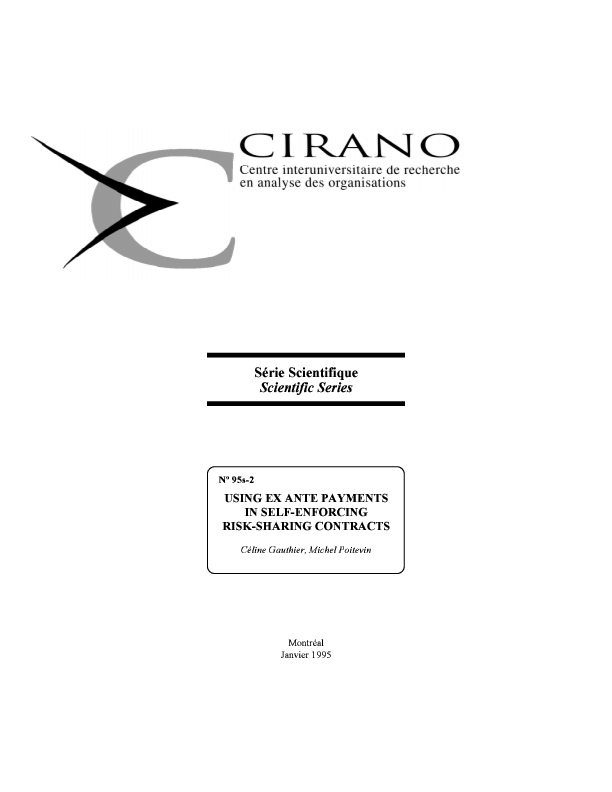Using Ex Ante Payments in Self-Enforcing Risk-Sharing Contracts
In this paper we analyze a long-term risk-sharing contract between two risk-averse agents facing self-enforcing constraints. We enlarge the contracting space to allow for an ex ante transfer (at the beginning of the period) before the state of nature is realized. We analyze the trade-off between the self-enforcing constraints of the two agents by characterizing the optimal ex ante and ex post transfer payments. We show that optimal ex ante payments are non-stationary. They optimally depend on the surplus from the relationship each agent expects. The size of the ex ante payment an agent makes is inversely related to its expected surplus from the relationship. The introduction of ex ante payments generates interesting dynamic properties. In a two-state example with i.i.d. shocks, the dynamics of the optimal contract exhibit experience rating even though there is no private information or learning taking place.
[ - ]




